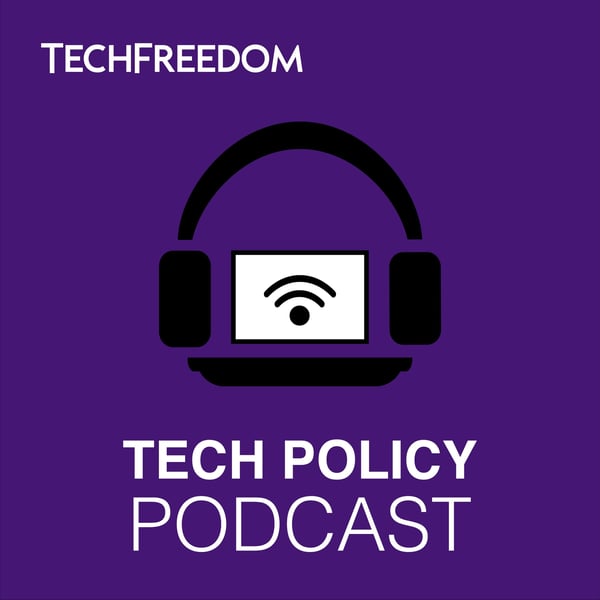#144: 5G and the Internet of Everything
Tech Policy Podcast
TechFreedom
4.8 • 45 Ratings
🗓️ 5 December 2016
⏱️ 23 minutes
🧾️ Download transcript
Summary
Transcript
Click on a timestamp to play from that location
| 0:00.0 | Welcome to the Tech Policy Podcast. I'm Evan Schwarger. |
| 0:09.2 | On today's show, 5G, the next leap in wireless technology. What are the possibilities with 5G, what's that world's going to look like? |
| 0:17.3 | What regulatory obstacles stand in the way? |
| 0:19.8 | Joining me to discuss this is Brett Swanson, president of entropy economics, and visiting |
| 0:23.9 | fellow at the American Enterprise Institute. |
| 0:26.1 | Brett, thanks for joining the show. |
| 0:27.4 | Evan, thanks so much. |
| 0:28.4 | Great to be here. |
| 0:29.0 | So when we talk about going from 3G to 4G or 4G to 5G, it only sounds like one order of |
| 0:34.0 | magnitude, but really it means generation, and these could be big leaps that are kind of |
| 0:39.6 | obscured by the only one number increase. So can you just for our listeners kind of lay out |
| 0:45.3 | what it looks like to go from 4G to 5G in terms of consumer-facing technologies? |
| 0:50.5 | Sure. To even go a little bit further back than that, you know, 1G was our original cell phones. |
| 0:57.9 | 2G added more capacity to the network to allow, you know, more cell phones. |
| 1:06.0 | 3G was, you know, in the middle of the last decade, was sort of the first time where we mobile phones had enough |
| 1:14.0 | capacity to do rudimentary data, so texting and a little bit of data. |
| 1:20.8 | 4G, you know, helped accommodate the explosion of mobile video and music and really rich multimedia content. |
| 1:33.3 | And 5G, in addition to the kinds of capacity gains that each previous generation had, |
| 1:40.3 | is in some ways a bigger leap, as you referred to, than the other generational increments. |
| 1:49.4 | It's going to be more diverse. |
| 1:51.3 | It's going to have broader reach. |
| 1:53.4 | It's going to accommodate a huge array of new device types, not just mobile phones, not just |
... |
Please login to see the full transcript.
Disclaimer: The podcast and artwork embedded on this page are from TechFreedom, and are the property of its owner and not affiliated with or endorsed by Tapesearch.
Generated transcripts are the property of TechFreedom and are distributed freely under the Fair Use doctrine. Transcripts generated by Tapesearch are not guaranteed to be accurate.
Copyright © Tapesearch 2025.

